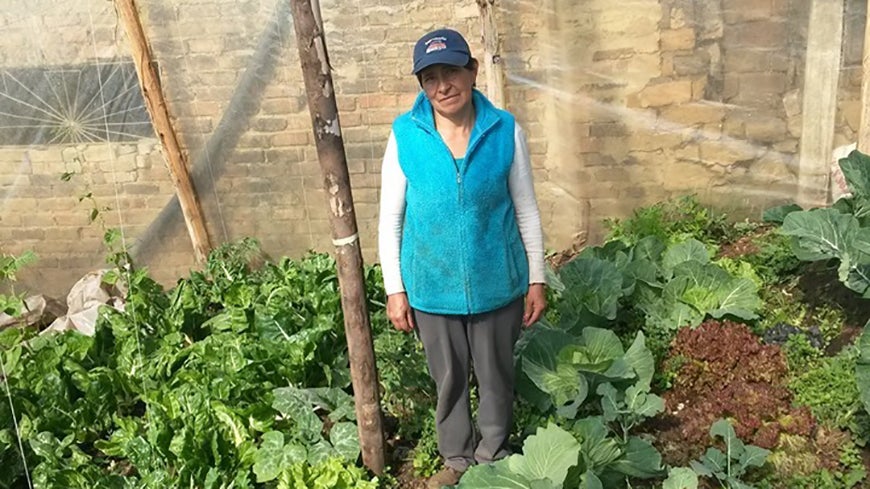
Colombia, Ecuador, Peru, and Bolivia are working together to gather data, formulate policies, and implement actions to safeguard Andean water resources under a joint initiative supported by the GEF, CAF, and CONDESAN - Consortium for the Sustainable Development of the Andean Ecoregion.
Andean countries share significant biological, ecological, and cultural wealth, as well as acute vulnerability to climate change because of the region’s geographic and socioeconomic conditions. Warmer temperatures and increased rainfall, fires, droughts, frosts, floods, and landslides are some of the extreme events that Colombia, Ecuador, Bolivia, and Peru are working together to cope with as they can alter the region’s water cycle and endanger its ecosystems and economies.
In an ambitious regional effort supported by the Global Environment Facility, the GEF-managed Special Climate Change Fund, CAF – the Development Bank of Latin America, and CONDESAN - Consortium for the Sustainable Development of the Andean Ecoregion, the ministers of environment of these four countries have committed to working together on climate change adaptation with an emphasis on water resources.
Through the Andes Adaptation to the Impacts of Climate Change on the Water Resources project, known as AICCA, each country is prioritizing a different sector, strategic for its own context. Colombia is focused on high mountain agriculture; Ecuador on small and medium-sized hydroelectric power; Bolivia on drinking water and sanitation; and Peru on small-scale irrigation for family farming.
Government and civil society partners are working together to generate and share knowledge, data, and methodologies that can inform climate adaptation practices and policies across the region. In addition, pilot actions are being implemented to help improve the resilience of both ecosystems and communities – these include efforts related to restoration, irrigation, early warning systems, sustainable agriculture, and information services, among others.
Following are highlights from these efforts to date:
Colombia: An inclusive approach to securing water supplies
The Lake of Tota, in the department of Boyacá, is the largest water body in Colombia. It supports important agriculture and livestock activities and supplies drinking water for 250,000 local people. These human activities and land use changes, combined with climate change impacts, have altered the balance of the water cycle, and affected its supply. Through the AICCA project, work is underway to analyze the interaction of different activities and stakeholders in the basin under various climatic scenarios, to enforce territorial planning instruments, to promote climate-resilient agricultural systems, and to strengthen local capacities for resource governance related to adaptation.

Ecuador: Supporting resilient small and medium-scale hydropower
In Ecuador, more than 97 percent of renewable energy comes from hydroelectric generation. Climate change presents a challenge for the sector as it could increase the probability of water shortages in certain areas of the country, as well as the presence of more intense rains in other territories, causing possible damage to the infrastructure of hydroelectric plants. The AICCA project in this country is focused on generating evidence and innovative proposals to include climate change considerations into planning and in the implementation of activities in the hydroelectricity sector, also ensuring the health of ecosystems and the resilience of nearby populations as essential pillars for energy sustainability.

Bolivia: Preventing floods and landslides in urban areas
Rapid population growth in recent years has made Bolivia very vulnerable to floods and landslides. This relates to increased settlements in high-risk areas, inadequate management of solid waste, and a lack of storm drainage systems, all of which are challenging with an increase in the intensity of rainfall related to climate change. Here, the AICCA project is working on contributing to the improvement of territorial planning (such as delimiting safety strips in rivers), implementing sustainable drainage systems, and strengthening the capacity and participation of local governments and civil society in climate adaptation practices. These initiatives are together working to support more sound environmental management strategies that can improve the safety of the population and the sustainability of the water resources in the Kanata Metropolitan Region in the department of Cochabamba.

Peru: Investing in resilient small-scale irrigation for family agriculture
Small-scale irrigation is key to the sustainability of agriculture and different forms of livelihood for vulnerable populations in poor areas of Peru. Because of climate change, on one hand, the lack of irrigation infrastructure affects farmers during times of drought; and on the other, the installed infrastructure is affected by landslides and floods. The objective of the AICCA project in this country is to support climate change adaptation measures in irrigation projects, through knowledge sharing and strengthened implementation capacities, as well as support in policies, standards, and technical instruments. It also supports the implementation of investment projects that integrate risk management to climate change in three regions of the country: Áncash, Cajamarca, and Piura, where work is underway to improve small-scale irrigation and support family farming.

The four countries linked together through AICCA face similar challenges in terms of information and knowledge gaps, methodological analysis, policy development, and sound territorial management practices that integrate climate change considerations. To address this, the project supports the exchange of information, regional dialogues, and other learning opportunities that ensure that approaches and experiences in all four countries are shared. By acting from the local and scaling to the regional level, the initiative seeks to build solid foundations to protect the future of water for the Andes.





